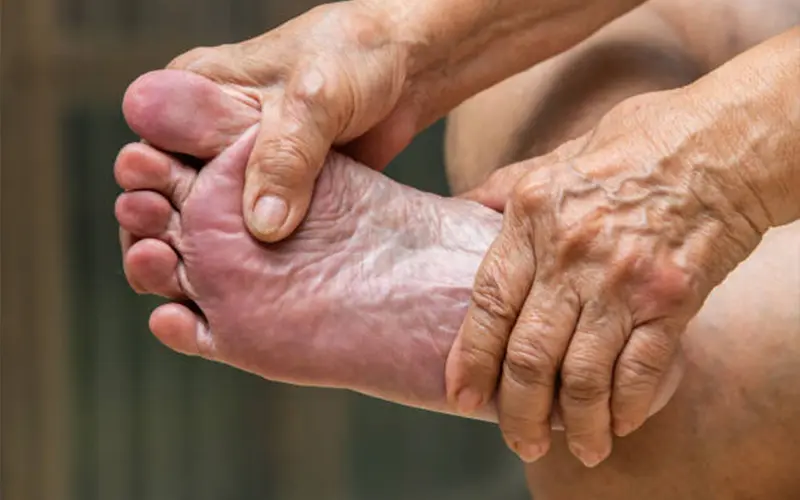Senior Foot Care

Far too often, people think foot issues are a result of getting older, and are nothing to worry about. In reality, any problem with a foot or ankle is an issue that needs to be addressed, especially as we get older. Of course, the best course of action is to take steps to prevent a condition from developing in the first place. When issues can’t be prevented, it is important to have them treated at their earliest stages.
Top Senior Foot Care Issues
Arthritis – There are actually several variations of arthritis. The type most people associate with the term arthritis is osteoarthritis. This condition is commonly seen in older individuals and is caused by natural “wear and tear” on the body over time.
Athlete’s foot – Fungal infections like athlete’s foot are commonly seen in senior patients. Anti-fungal products (sprays, powders) are usually quite effective for treating mild-to-moderate cases and can even be used to prevent the condition from developing.
Fungal toenail infections – While athlete’s foot affects the skin, some fungal infections take place in the toenails. These fungal infections cause discolored, and thickened nails, triggered by warm, damp environments.
Dry skin –Dryness of the skin might not seem like a big deal. But excessive dryness can lead to fissures and cracks in the skin on your feet, which can become breading grounds for microorganisms. You can lower your infection risk by keeping your skin moisturized. Use lotion or cream daily on clean feet before bedtime.
Toe deformities – Muscular imbalances in the toes can build up over time and cause deformities like hammertoes, mallet toes, and claw toes. Bunions are another issue that can develop due to imbalance in a joint (the joint found at the base of the big toe, in this instance).
Prevention Tips for Senior Feet
The best practice is always to take steps that will decrease the risk for those conditions, especially as you become older. Fortunately, preventative foot care isn’t particularly complicated. Some of the best practices include:
- Keep your feet dry. This is a key component to avoiding fungal infections. If your feet are going to become wet or sweaty, have a spare set of socks to change into. Make sure your socks wick moisture away. Choose shoes that are made from breathable material. Air out your feet when possible by wearing sandals or open-toed shoes.
- Get regular exercise. We cannot stress the importance exercise for your overall health. It will also keep your feet safe by providing better circulation, injury prevention, and stronger muscles to retain functionality.
- Watch what you eat. Your body needs proper nutrients to keep the bones, muscles, skin, and nail tissue of your feet nourished. Taking a good-quality multi-vitamin may also prove beneficial.
- Maintain a healthy weight. Getting regular exercise and watching what you eat often makes it easier to control your weight. Maintaining the right weight for your body type and height reduces the stress and pressure that feet face from excess weight.
- Keep your toenails properly trimmed. Maintain your nails by keeping them trimmed even with the edge of your toe (so they aren’t too long or too short) and in a straight line. Avoid the temptation to round off your nails, since that can possibly lead to ingrown nails.
- Wear shoes that fit well. Too many foot and ankle issues arise from footwear that does not fit properly. Choose shoes that cradle the heel, allow your toes to wiggle, and have a thumb’s width of space between your longest toe and the front of the shoe.
Upperline Health’s trained foot and ankle specialists can provide the care you need for any existing foot or ankle problem that is causing pain or interfering with your ability to enjoy your daily activities. Additionally, we can assist you in creating a foot care plan to decrease the risk of having issues arise.

Contact one of our Upperline Health clinics to get your Senior Foot Care treatment started.
Treatments offered may vary by clinic.
